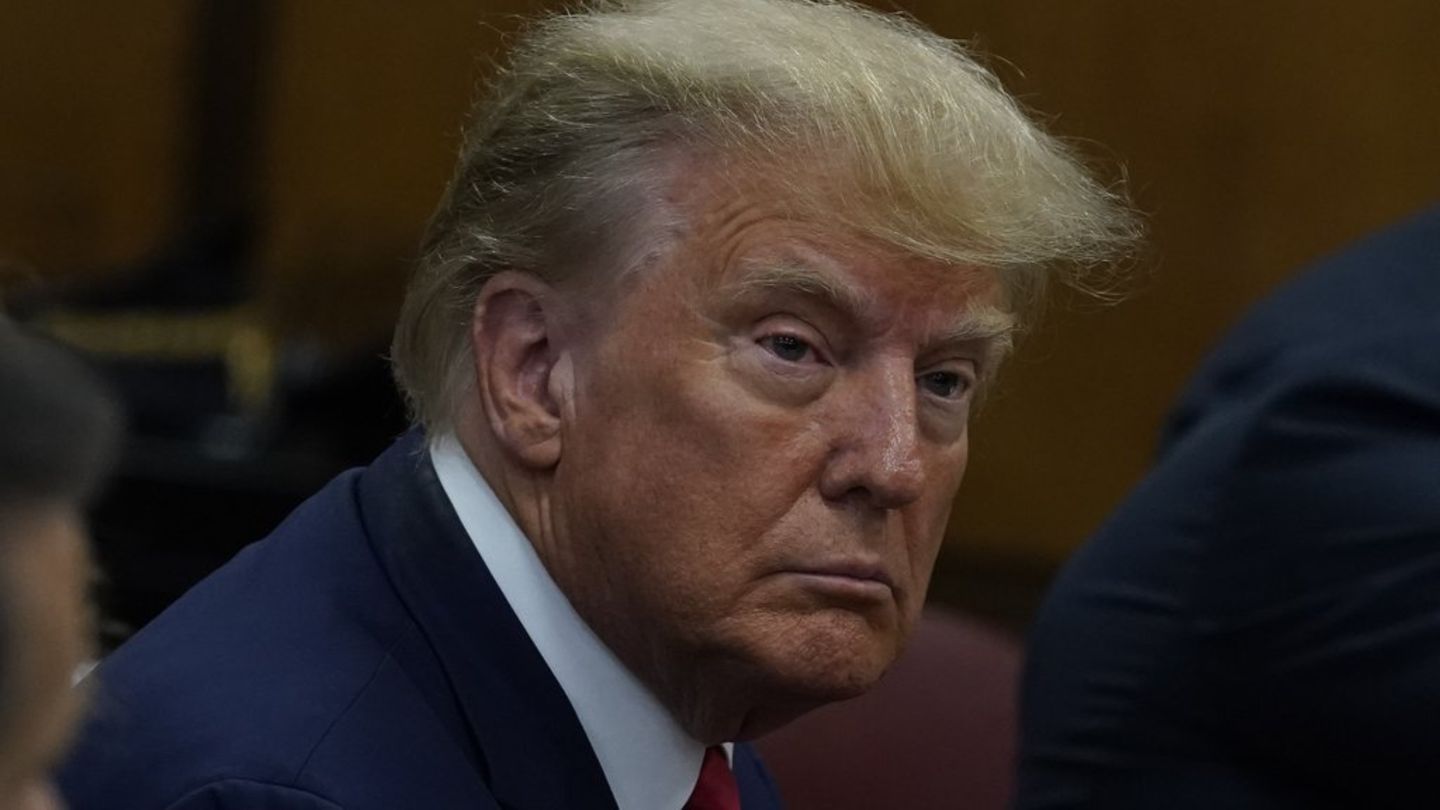A historic court case begins in New York. Donald Trump is the first former US president to face criminal charges.
Donald Trump (77) has to go to court again. A historic trial begins in New York on April 15th. The Republican is the first former president in the United States to face criminal charges. The legal drama that could be the trial of the year involves a porn star, hush money and possible election interference.
What exactly is the Trump trial about?
Trump is accused of falsifying business documents in 34 cases. At the center of the allegations is an alleged hush money payment to the porn star Stormy Daniels (45). The politician is said to have transferred 130,000 US dollars – the equivalent of around 122,000 euros today – to the actress shortly before the election in 2016. Daniels claims to have had an affair with Trump.
Such agreements are generally not illegal – although supposedly inadmissible bookings to possibly cover up further offenses are. The public prosecutor's office assumes that Trump wanted to hide harmful information and influence the election in his favor. The ex-president's team rejects the allegations. Trump, who was the 45th President of the USA between 2017 and 2021, sees this as a political hunt to prevent him from running for another term.
Why jury selection is so important and so difficult
The legal drama begins on Monday with the selection of the twelve jurors, which, according to US reports, could take a week or longer. It is expected that it will take around six to eight weeks until a verdict is reached in the criminal case.
“You really don't want jurors who bring anything with them other than the fact that they know that Trump was the president,” former prosecutor Joshua Naftalis told the news portal Axios. The jury should approach the trial as impartially as possible because they decide whether to acquit or guilty. The responsible judge then determines the sentence.
“In New York you are in a liberal state. So you obviously assume that the political attitudes of the potential jurors are rather liberal,” says Camille Vasquez (39), describing the difficulties surrounding a possible bias against the Republican in an interview “National Public Radio” (NPR). Vasquez, who was part of Hollywood star Johnny Depp's (60) legal team in his defamation case against his ex-wife Amber Heard (37), explains: “I think you have to be clear about whether their political views affect their ability will listen to the evidence with an open mind and really have an open mind.”
What does the trial mean for Trump and possible re-election?
If Trump, who is seeking re-election, is convicted, the worst-case scenario is a long prison sentence. According to Laura Coates (43), a legal analyst for CNN, the ex-president could theoretically end up in prison for more than a decade. The judge could therefore only sentence the politician to a fraction of such a sentence. Imprisonment could also be dispensed with entirely; for example, a suspended sentence with conditions set by the judge is also possible.
If there is actually a conviction, it will raise numerous questions that the USA has never had to answer before. For example, how should Trump be treated the same as anyone else before the law and in prison if, as a former president, he is entitled to lifelong protection from the Secret Service for security reasons?
And what about Trump's campaign? According to the New York Times, it is clear that the ex-president can in principle continue to seek the presidency again if he is convicted. Although there are states that prohibit criminals from applying for official positions, this does not apply at the federal level. However, further questions would need to be clarified here, including: For example, could individual states refuse to put Trump on the ballot? One thing is certain: the trial will attract a lot of attention in the coming weeks.

